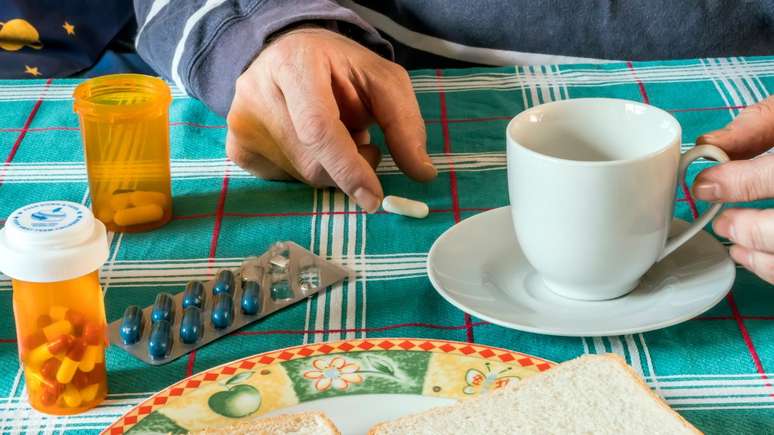Caffeine can change the result of medicines, supplements and vitamins, and this week this is the subject addressed in the pharmacist column Jamar Tejada
Who doesn’t like coffee? This is one of the most consumed drinks in the world, losing only for water. And they are one of those who are up to the fame, like almost all Brazilians. Although the attention increases, protecting from neurodegenerative diseases, reducing the risk of type II diabetes and having so many other benefits, the negative points not a few, being dependence, anxiety, insomnia and the main interactions.
Nobody imagines – or maybe you don’t want to know to avoid dependence – is that these interactions with medicines and supplements are something you should worry about. That’s why I dedicate this theme to my column today. Can we understand how coffee compounds can affect the effectiveness and safety of your medicines? Do you use any of these?
Coffee with medicinal interactions
Antidepressants
Caffeine can influence serotonin, a crucial neurotransmitter for the treatment of depression. In some cases, caffeine can improve the effects of antidepressants, causing anxiety and insomnia, while in others it can reduce their effectiveness, making it difficult to control symptoms.
Antibiotics
The antibiotic ciprofloxacinFor example, it can have its absorption altered by the presence of caffeine, which can lead to a decrease in the effectiveness of the treatment. Caffeine competes through liver metabolization, compromising the elimination of the two compounds.
Antipsychotics
Coffee intake can increase the absorption of some antipsychotics, such as the ClozapineIncrease their levels in the body and increase the risk of side effects. This interaction is particularly worrying in patients subject to treatment for psychiatric disorders.
Anticoagulant
Coffee can affect blood coagulation, interacting with medicines, such as Varfarin. Caffeine can inhibit the enzymatic activity that metabolizes it, with consequent potential increases in the levels of anticoagulation and risk of bleeding.
Hypertension medicines
Caffeine can raise blood pressure temporarily, which can cancel the effects of antihypertensive drugs. This, in turn, can be particularly worrying for patients with uncontrolled hypertension.
Thyroid medicine
Levotiroxine, a common drug for the treatment of hypothyroidism, can have its absorption reduced by caffeine. Studies indicate that coffee can interfere with pharmacokinetics from levotiroxinaleading to the need to adjust the doses.
Narcotics and analgesics
Caffeine can improve the effects of painkillers, such as acetaminophenBy increasing the analgesic effect, but also increases the risk of side effects. This is due to the potential for pain modulation by caffeine, which acts on similar neural roads.
And the supplements?
Iron supplements
THE chlorogenic acidPresent in coffee, it can inhibit iron absorption. The consumption of coffee near the intake of iron supplements can lead to a significant reduction in the bioavailability of this essential mineral.
Calcium and other minerals
Caffeine can increase the excretion of urinary calcium, leading to a potential risk of disability, especially in people who consume coffee in large quantities and have an inappropriate intake of calcium.
BSIVAMINE BB complex
Caffeine can influence the metabolism of vitamin B, in particular Vitamin B6Potentially resulting in non -optimal levels of these vitamins in the body and, consequently, affect the health of the metabolic and nervous system.
Herb of San Giovanni (Hypericum perfuratum)
The interaction between coffee and supplements such as St. John’s grass can be complex. Coffee can increase the activity of some liver enzymes that metabolize these supplements, with consequent reduction of their therapeutic effects.
I want to remember that the interactions can vary from person to person, depending on individual metabolization and the amount of caffeine consumed. To ensure the effectiveness of the treatment and minimize risks, it is always advisable to consult a healthcare profession. If you are having a medicine or supplement, talk to this best way professional to integrate coffee into your routine. Health is a delicate balance and information is a powerful ally. Good coffee!
Source: Terra
Ben Stock is a lifestyle journalist and author at Gossipify. He writes about topics such as health, wellness, travel, food and home decor. He provides practical advice and inspiration to improve well-being, keeps readers up to date with latest lifestyle news and trends, known for his engaging writing style, in-depth analysis and unique perspectives.









